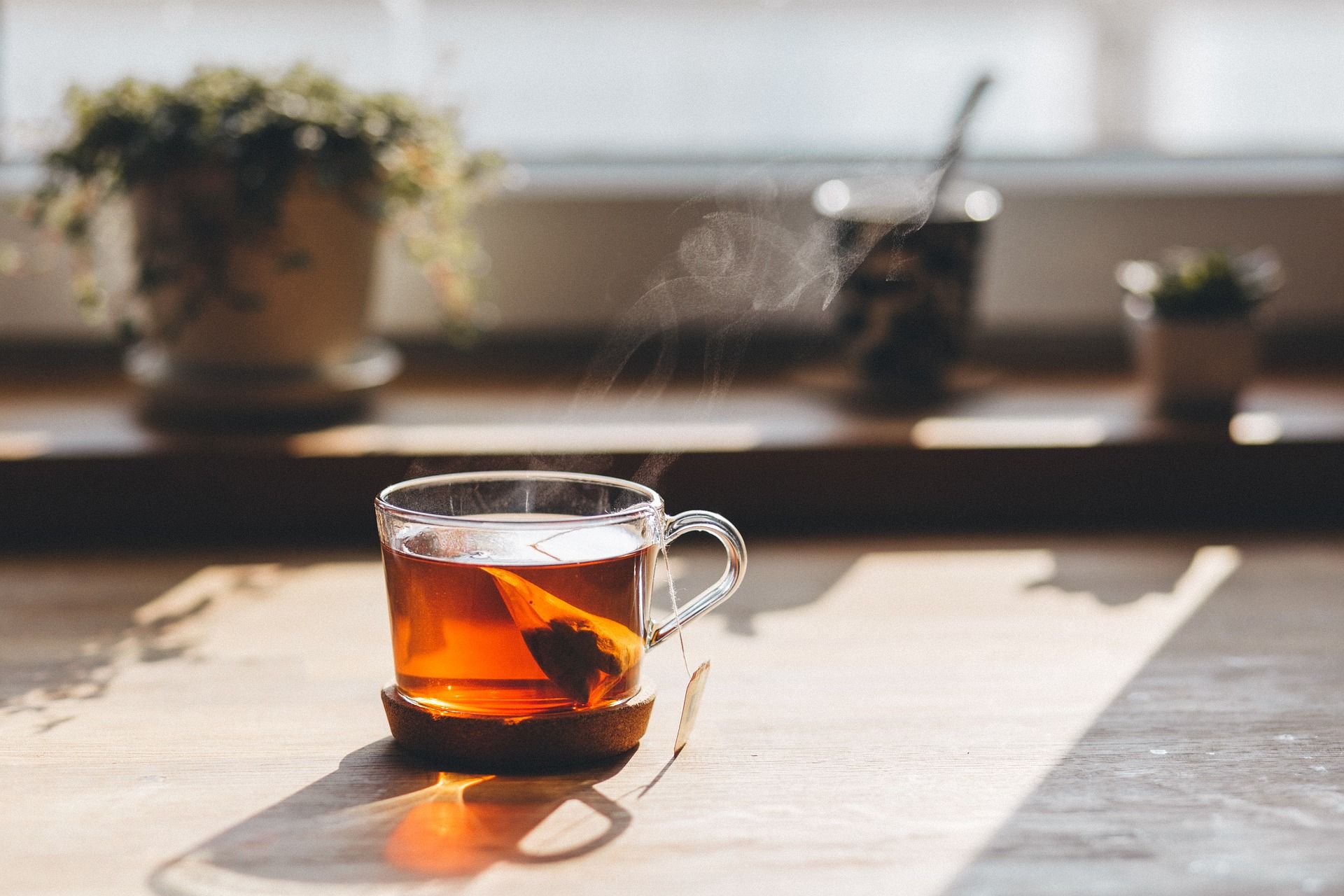What to Eat During Your Period to Feel Energised and Calm
updated on Nov 28, 2019

Whether you’re suffering from PMS and cramps or just feel like you want to hide under a duvet, being on your period can be difficult. Here we speak to a nutritionist to find out how a tweak in diet could help us feel calmer, less in pain and more alert
There are a couple of weeks every month where I feel like I’m operating at half-speed. I feel lethargic, irritable and when my period comes, I’m often in a lot of pain. For me a combination of pain-killers, hot water bottles and CBD balm helps take the edge off, but I’m convinced there’s more I could be doing.
Feeling low in energy and agitated for half the month isn’t ideal, especially for my partner who tends to be on the receiving end of my spikey moods. Through menstrual cycle tracking I’ve gained a lot of awareness of how my moods change and why my anxiety peaks, but knowing what to do about it feels like the missing piece.
And I wonder if looking at what I’m eating could be this missing piece. We’re starting to understand just how much our diet affects not only mood but our mental health. So when our bodies experience hormonal and mood changes, there must be tweaks we can make to our diet to support that.
I spoke to nutritionist Julia Young and asked her what we can eat to help us feel more energised and calm during our period and she offered the following recommendations.
Protein (enjoy with every meal and snack)
Ensuring that our blood glucose levels are in balance can help us feel energised and prevent sugar crashes and cravings. Good sources of protein include poultry, fish, eggs, pulses, nuts and seeds.
Wholegrains
Along with protein, wholegrains help to balance blood sugar levels by releasing energy steadily. They are also a source of fibre needed to clear out old hormones and toxins. Good sources include brown rice, oats, quinoa, buckwheat, whole wheat pasta.

Leafy vegetables
Leafy veg like spinach, kale, broccoli, cabbage and cauliflower are high in magnesium which is a nerve and muscle relaxant and may help prevent migraines and cramps. They’re also a source of iron which may be low, particularly if menstrual flow is heavy (low iron can lead to fatigue and dizziness).
Leafy vegetables also contain compounds called indole-3-carbinol which support liver function, important for helping to eliminate 'old' hormones and keep hormone levels balanced.
Healthy fats
Oily fish such as salmon, mackerel, sardines and anchovies are high in omega 3 fatty acids. These essential fats have an anti-inflammatory effect which may help to reduce period pain and also prevent mood swings. Other healthy fats include nuts, seeds, olive oil and avocados. Flaxseeds and flaxseed oil are another good source of omega 3 fatty acids. These contain phytoestrogens which may help to balance hormones and relieve menstrual symptoms.
Calcium rich foods
Calcium rich foods such as kale, broccoli, beans, almonds, chia seeds, sunflower seeds and seaweed are thought to improve hormone balance and ease menstrual symptoms.
Foods rich in B vitamins
Foods like wholegrains, nuts, sunflower seeds, sweet potato and poultry are important for energy production. In particular, vitamin B6 is needed for the production of chemical messengers serotonin and dopamine. Low levels of these chemical messengers or neurotransmitters are associated with breast pain and water retention, as well as anxiety and irritability. Including these in your diet may help to improve mood symptoms.
Water
Drinking plenty of water can reduce menstrual headaches, bloating and water retention. Herbal teas are another good option for keeping hydrated. Fennel tea may help to reduce menstrual bloating and ginger tea has anti-inflammatory effects which can help soothe aching muscles. Chamomile and lemon balm teas also have relaxing effects.

Julia also pointed out that it’s important for us not to go hungry, “this will do nothing for your mood, everything seems 100 times worse on a grumbling tummy. Eat little and often, around every four hours”, which is music to my ears as I often feel more hungry around my period.
As a piece of parting advice, Julia recommends exercise – and while this is less musical to my ears, you can’t argue with the logic.
“Exercise can enhance blood flow to the pelvic area and lessen bloating and cramping. Being outside will increase your exposure to natural light and increase your intake of vitamin D which is important for regulating sleep and boosting mood. A brisk walk a day is better than nothing, but aim to make it a regular part of your lifestyle – choose something you enjoy.”
Armed with all this advice, I’m almost (dare I say it) looking forward to my next period so I can try it out and see what difference it makes. I do want to end with a reminder that for some, periods bring more than low energy and cramps.
Some suffer with extreme changes in mood and even suicidal thoughts due to a condition called premenstrual dysphoric disorder and some experience extreme pain due to conditions like endometriosis.
So, if your period is impacting you severely make sure you visit your doctor. You don’t need to suffer in silence.

